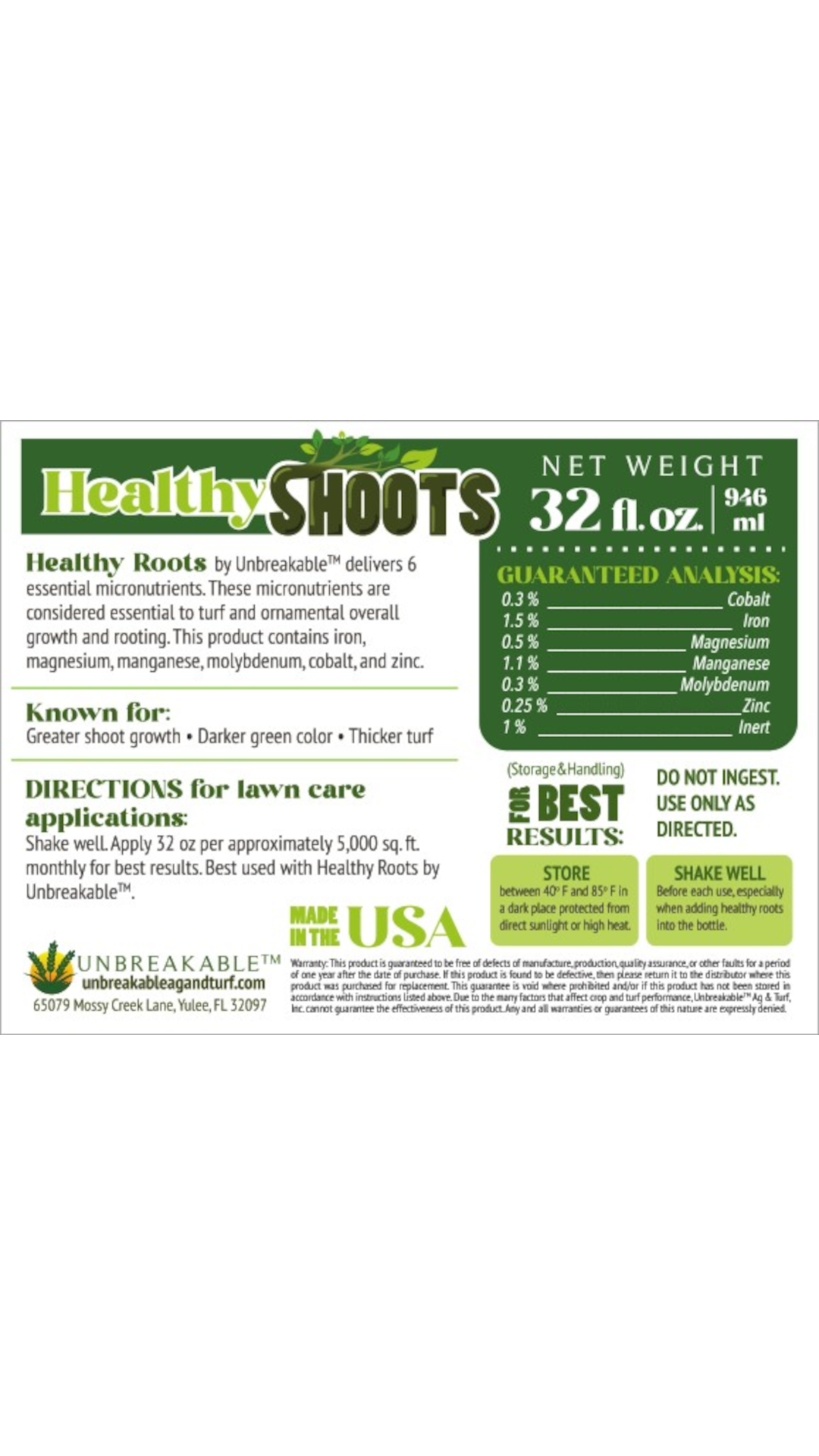Purpose and additional details:
Greater shoot growth
Darker green color
Thicker turf
Iron, Magnesium, Manganese, Molybdenum, and Zinc are essential micronutrients for turfgrass health and vitality. These micro-nutrients play crucial roles in various physiological and biochemical processes within the plant.
Here's a breakdown of their importance:
Iron (Fe):
Chlorophyll production: Iron is essential for chlorophyll synthesis, the pigment responsible for the green color of grass and for photosynthesis.
Oxygen transport: Iron is involved in transporting oxygen within the plant.
Deficiency symptom: Iron deficiency is a common problem in turfgrass, often resulting in interveinal chlorosis (yellowing between the leaf veins) on new growth.
Magnesium (Mg):
Chlorophyll center: Magnesium is the central atom in the chlorophyll molecule.
Photosynthesis: Crucial for efficient light energy capture and conversion into sugars and starches.
Enzyme activation: Activates enzymes involved in energy transfer and protein synthesis.
Deficiency symptom: Magnesium deficiency causes chlorosis, resulting in a pale green color in older leaves, even when other nutrients are sufficient.
Manganese (Mn):
Photosynthesis: Plays a vital role in carbon dioxide assimilation and electron transport during photosynthesis.
Nitrate absorption: Aids in the absorption of nitrate.
Enzyme activation: Activates enzymes involved in lignin formation (important for disease resistance) and fat formation.
Stress tolerance: Enhances tolerance to environmental stress by activating enzymes that remove toxic substances from plants.
Deficiency symptom: Manganese deficiency can cause interveinal chlorosis and spotting on leaves, potentially making turf soft to the touch.
Molybdenum (Mo):
Nitrogen metabolism: Crucial for nitrogen metabolism, specifically in converting nitrate to ammonia, which plants use to synthesize amino acids and proteins.
Nitrogen fixation: Essential for nitrogenase, the enzyme responsible for nitrogen fixation in legumes and certain bacteria, which helps make nitrogen available to plants.
Availability: Molybdenum availability increases in alkaline soils and decreases in acidic soils.
Deficiency symptoms: Molybdenum deficiency can lead to stunted growth, distorted leaves ("whiptail" in some plants like cauliflower), and restricted flowering.
Zinc (Zn):
Enzyme activation: Zinc is a vital component of many enzymes involved in various plant metabolic processes, including carbohydrate, protein, and chlorophyll formation.
Growth hormone synthesis: Important for the synthesis of plant hormones, particularly auxins, which promote turf growth.
Membrane integrity: Helps maintain the structure and stability of cell membranes.
Stress tolerance: Can improve tolerance to environmental stresses like drought and salinity by supporting antioxidant defense systems.
Deficiency symptoms: Zinc deficiency can lead to stunted growth, interveinal chlorosis, and leaf deformation.
In summary:
These micronutrients, while needed in small amounts, are critical for maintaining healthy, vibrant turfgrass. Deficiencies in any of these nutrients can impact growth, color, and stress tolerance. Addressing deficiencies through proper fertilization can improve turfgrass health and appearance.
Also available:
Healthy Roots by UnbreakableTM delivers 5 beneficial microbes that are a family of commercial grade probiotics for home lawns, gardens, and food plots . They increase the CFU counts of the microbes listed, which produce a wide range of soil enzymes.



